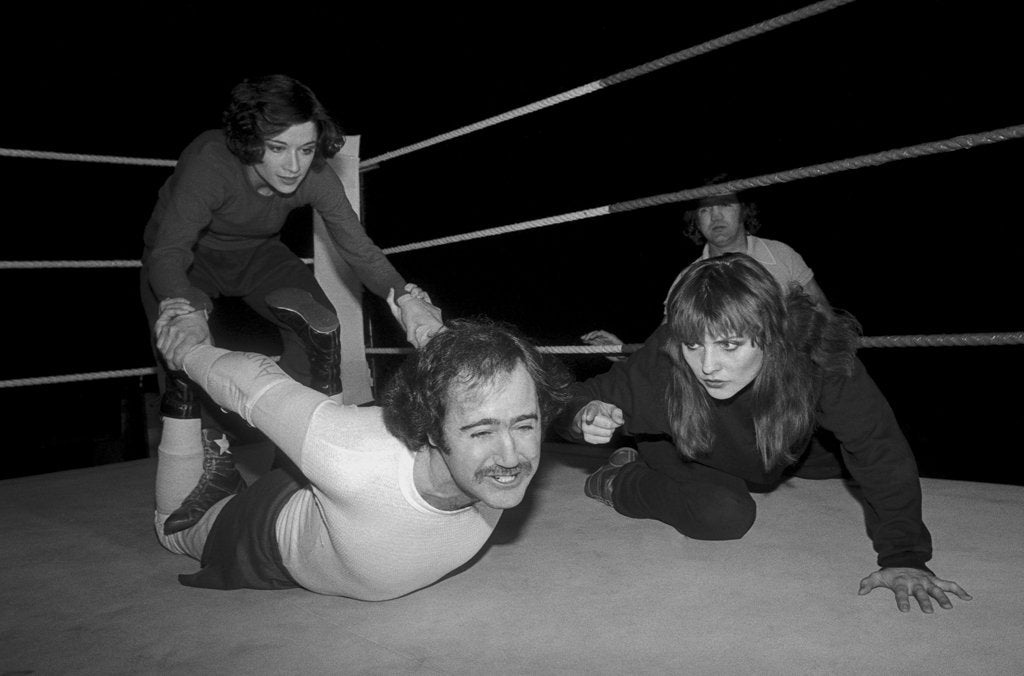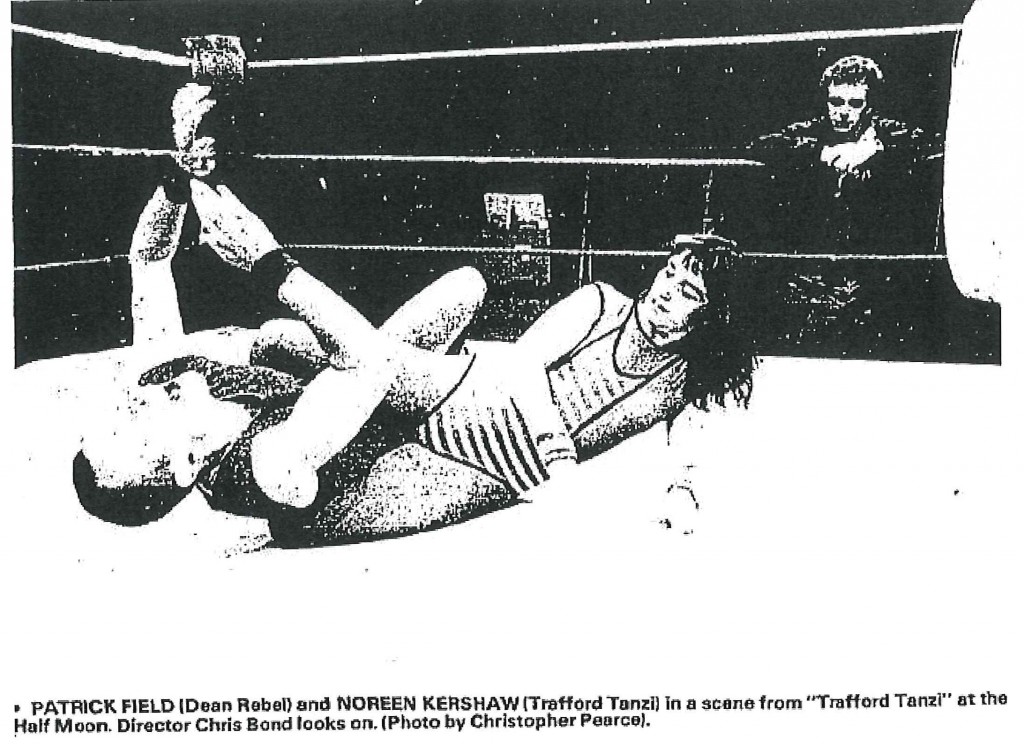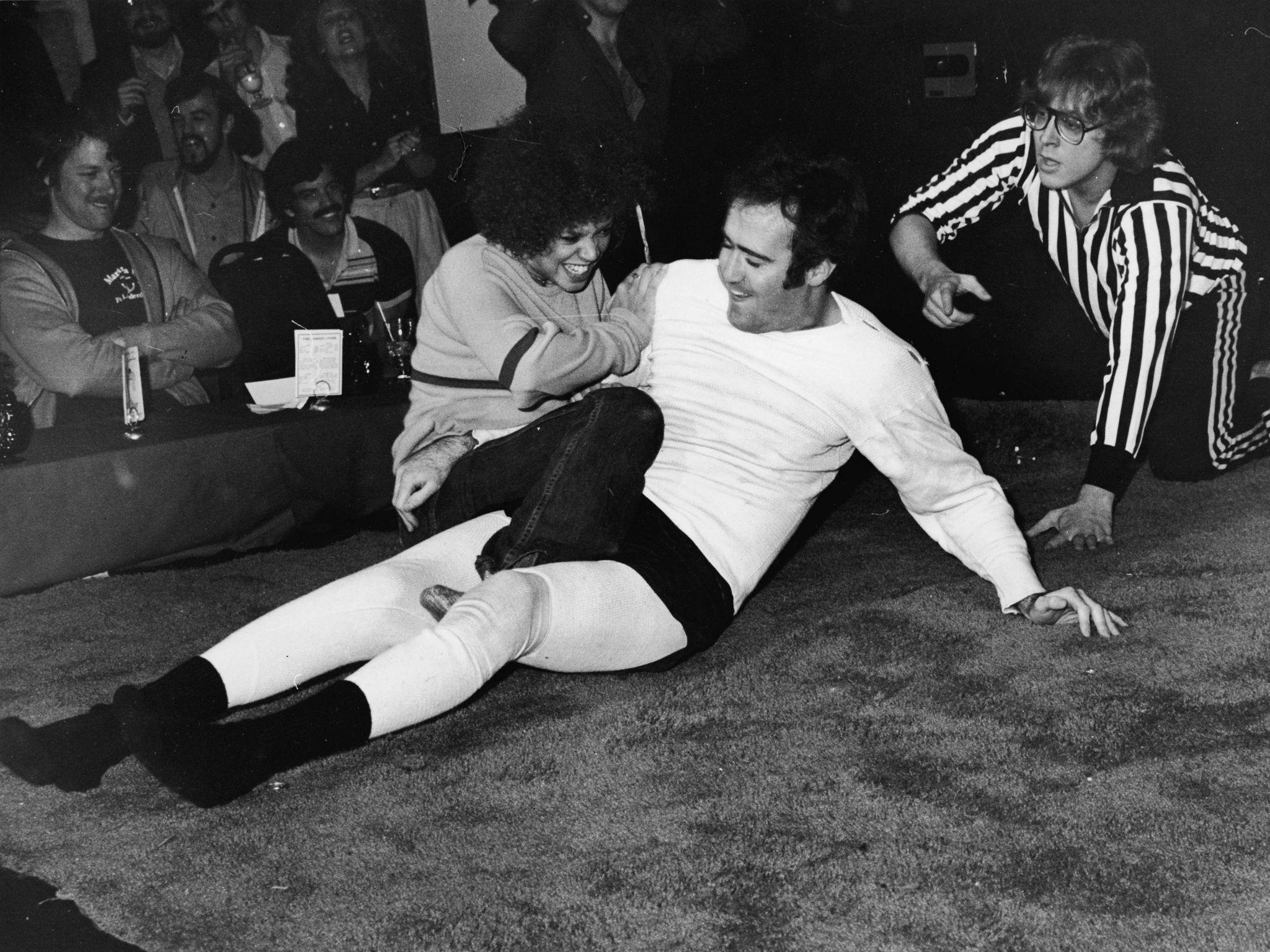Despite the success of Clare Luckham’s play ‘Trafford Tanzi’ in London, its American adaptation titled ‘Teaneck Tanzi’ fell short of audience expectations and of its strange but interestingly casted lineup.

Originally performed as ‘Tuebrook Tanzi: The Venus Flytrap’ in Liverpool, England in 1978, Clare Luckham’s avant-garde feminist play found success among critics and audiences. The production, which took its first word from wherever it played, appeared to an enthusiastic reception in Manchester as ‘Trafford Tanzi’, before becoming ‘Taranza Tanzi’, ‘Tujunga Tanzi’, ‘Texas Tanzi’, Tickfaw Tanzi’ and eventually, on Broadway, ‘Teaneck Tanzi: The Venus Flytrap’.
The play is based around the title character, Tanzi, who is raised by her parents to conform to tradition feminine roles but rebels against them. She marries a wrestler, ironically named Dean Rebel in an ode to 1950’s superstar James Dean and his performance in A Rebel Without A Cause. Tanzi eventually becomes a professional wrestler herself and engages in a match with her husband to decide who will do the housework. The entirety of the play is staged within a boxing ring and is divided up into ten rounds ending with a bell just as in a wrestling match, with arguments being settled physically rather than through dialogue. The audience were encouraged to get involved and boo or cheer as they see fit, though they were assisted with sit-ins strategically placed throughout the crowd.
‘Tanzi’ was one of London’s biggest comedy hits on its release, but as soon as it reached Broadway it flopped. As one particularly unkind reviewer in The New York Times wrote, the plays “charm must have bailed out somewhere over the Atlantic”. Premiering at the Nederlander Theatre in April of 1983, the play, under the title ‘Teaneck Tanzi: The Venus Flytrap’, closed after only one night. This comes to a surprise to those who have only learnt of the production after its history has been written, due to its unique cast.

The roles of Tanzi and Dean Rebel alternated due to the strenuous nature of the play. Presumably both casts appeared at the show’s one and only performance. The first, Thomas G. Waites and Caitlin Clarke, remembered now for her role in the 1981 fantasy Dragonslayer and her appearance in the Broadway musical adaptation of Titanic, were considered the better duo by reviewers. However, the alternate pair of Scott Renderer and Deborah Harry, otherwise known as Blondie, are far more intriguing.
Deborah Harry, born in New Jersey and briefly working as a Playboy Bunny, found international success with her band Blondie. Their 1979 single ‘Heart Of Glass’ became one of the best selling singles of all-time and has been included in numerous lists of the best songs ever written. She was a friend and subject of Andy Warhol and first appeared as an actress in 1980’s neo-noir film Union City before appearing in David Cronenberg’s body-horror film Videodrome in 1983. Despite evidently being a woman of many talents, critics were still surprised to see her appear in ‘Teaneck Tanzi’, and she was plagued by questions as to whether it would mean the death of Blondie, who in fact went on the record many more number one hits.
Also going down solemnly with the ship that was the failed production was renowned and legendary entertainer Andy Kaufman. Briefly appearing on Saturday Night Live and regularly performing both as himself and as his characters, Kaufman was known for breaking the fourth wall, baffling his audiences and creating ridiculous and uncomfortable situations for the purposes of comedy. Because of this, Kaufman, even before taking the role in the play, became interested in professional wrestling, and titled himself ‘Inter-Gender Wrestling Champion of the World’, frequently wrestling women.
10 years after his death in 1984 it was revealed that Kaufman’s feud with famous wrestling champion Jerry Lawler, which spawned an on-air fight during Late Night With David Letterman and Kaufman’s broken neck and subsequent sporting of a neck brace during public appearances, was a massive hoax. Kaufman’s history as a showman and his lack of inhibition made him the perfect choice to play the referee of the boxing ring during ‘Tanzi’.
Before the performance began, the audience were accosted. Kaufman, posing as an usher with a cigarette dangling from his mouth, demanded to see everyone’s ticket stubs and loudly threatened to eject anyone who couldn’t show them quickly. The subsequent hostilities from the audience were what Kaufman thrived on, and only a few in the crowd knew he was pandering to them while others became aggressive.
Not much has been written about the performance itself except in negative statements towards a repetitive and predictable story and average performances from Deborah Harry and Scott Renderer, Caitlin Clarke considered the better actress. Critics claimed the feminist message was inaccurate and over exaggerated and the action of the performance boring. These overwhelmingly negative reactions led to the plays swift closing, which Kaufman probably found fairly amusing.

Kaufman described his time in the play as ‘sadistic fun’, which is an accurate way of describing the world’s memory of it. Despite apparently positive previews performances, the play is a rare example of a complete and utter failure, and for some reason that is what makes it interesting. Kaufman was sadly to die of lung cancer only a year later. Of his time in the play, Harry said of him, “In our rehearsal space there was a section in another room where we would all go eat lunch on these bleachers. And he would take out his macrobiotic food and eat it very quietly, in a very focused manner. I think he was aware that he had cancer at that time, so he was actually on the quiet side.”
He is remembered as one of the most innovative comedians of all time today, and many still speculate whether his death has been an elaborate hoax and he will one day reveal himself, some even claiming he is President Donald Trump.
Though the play isn’t remembered these days for obvious reasons, the story of its failure in America is fascinating. There is nothing like human failure to bring lives together, and the strange, oddball collective of cast members coupled with the ridiculousness of the plays premise and Kaufman’s way of pushing the envelope both on and off the stage combine to create an extremely human story.
Subscribe to FIB’s Weekly Alchemy Report for your weekly dose of music, fashion and pop culture news!






